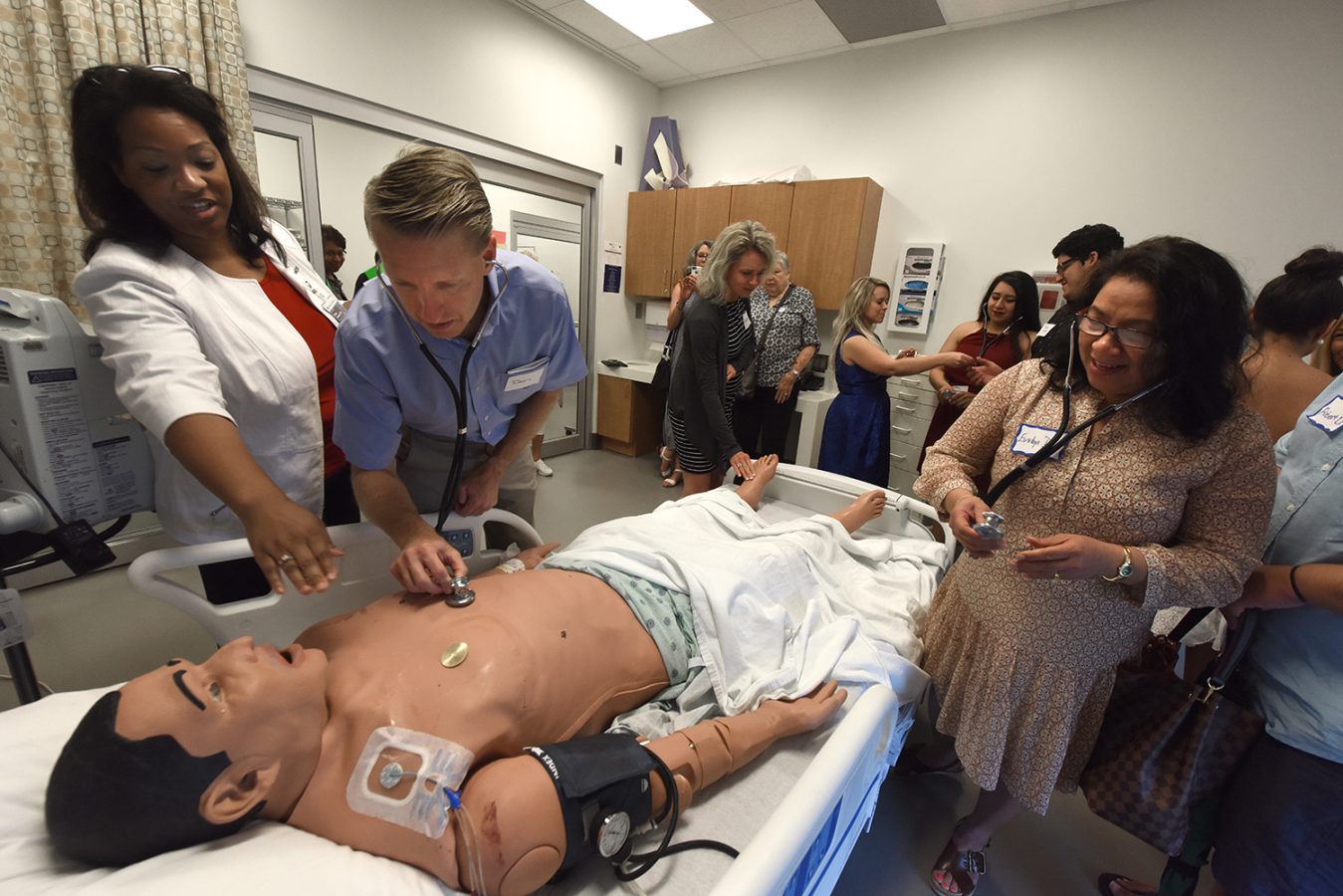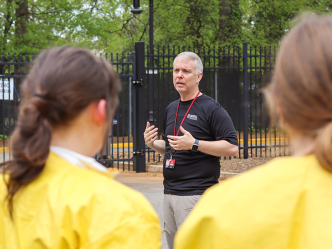Major natural disasters. Mass casualty events. Multiple victims.
These are high-stress situations for any health-care professional—situations that have been difficult to prepare for.
The advance of simulation technology, however, has enabled health providers and students to train for high stress scenarios before they occur. Simulation centers like Augusta University’s Interdisciplinary Simulation Center have been at the heart of this kind of training.
“The Interdisciplinary Simulation Center is important for students because it provides a true-to-life environment for them to learn and refine their patient care skills,” said Justin Owen, director of the Interdisciplinary Simulation Center. “This is a safe place for our future health care providers to apply what they know in a clinical setting and to then receive expert feedback on their performance.”
To celebrate this resource and the professionals and students who use it, the Interdisciplinary Simulation Center is participating in the first Healthcare Simulation Week, a worldwide event sponsored by the Society for Simulation in Healthcare.
During this week, which starts Monday, the 40,000-square-foot Interdisciplinary Simulation Center will host a series of events, including tours and simulation demonstrations. The goal is to show how students from different disciplines can work together and learn through realistic simulations of clinical situations.
The Interdisciplinary Simulation Center is a space for the Medical College of Georgia, College of Nursing, Dental College of Georgia, and College of Allied Health Sciences faculty and staff to create simulations of realistic scenarios to train their students. Features of the center include one 150-seat classroom, 8 debriefing rooms, 10 simulation rooms, and 30 clinical skill exam rooms.
 Augusta University
Augusta University




